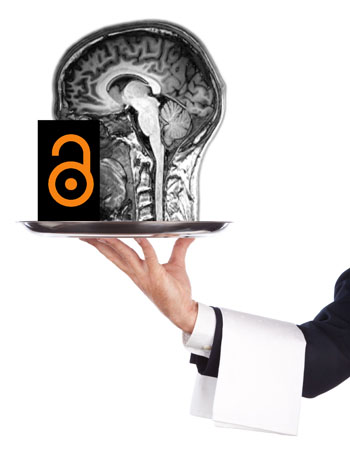- Home
- Who-is-Who
- Workshops
- Big Data in Electrophysiology
- Personalized health care workshop
- NeuroImaging Data
- Neuroinformatics congress 2015
- Atlasing workshop
- Neuroinformatics2014
- Cortical activity patterns
- Population Neuroimaging
- Image Analysis
- Imaging Summerschool Antwerp
- Predictive Neuroinformatics
- Neurotechnology Symposium
- Data sharing workshop
- Neural Systems modeling
- Donders Connectomes workshop
- Clinical Applications workshop
- Brain-inspired computing
- Dendrites workshop
- Share and Flourish
- Symposium 2011
- Calendar
- Companies
- Software & Services
- About / Mission
Data sharing workshop

Time: 13:00 - 17:30pm, followed by drinks
Subject: Data sharing, with emphasis on neuro-imaging
Please register by December 9.
Help us advertise the event with the POSTER. This workshop presents seven opinions on data sharing, to address these key issues:
- Will inclusion of other institutes' data boost your research?
- What about loosing your competitive edge?
- What about patient privacy?
- What about publications and citations?
- What about people deriving wrong claims from your data?
- Should public money only be spent on Open Access projects?
- Are scientific claims based on inaccessible data acceptable for publication?
- How to share massive amounts of data?
Program:
| 12:45 | Coffee | |
| 13:00 | Welcome by program chair | |
| 13:05 | David Kennedy | Stop the Brain Drain! - Resources for Sharing Imaging Data abstract Neuroimaging research increasingly relies on tools to store, manage, and share data and meta data. Simple and global access to neuroimaging data and metadata will profoundly impact the field through the transparency and reproducibility of analysis, extensive re-use of data for novel interrogation and discovery, and preservation of the massive financial investment in the acquisition of comprehensive phenotypic descriptors. In this presentation I will briefly touch upon the motivation for sharing neuroimaging data as well as the available strategies for doing so. Rewards (publications) and barriers (ethical and legal issues) will be discussed in the context of paving the way to more extensive data sharing in the future. I will also comment upon international cooperative initiatives, such as the INCF Task Force on Neuroimaging Datasharing, that can be utilized to help reduce the barriers to effective and extensive data sharing. |
| 13:50 | Wiro Niessen | Data sharing in Biomedical Imaging abstract There is much to gain when sharing imaging data for analysis across sites, but there are also many challenges. I would like to make the case that robust, standardized and validated image analysis methods will and should play a keyrole in addressing these challenges |
| 14:20 | Jelte Wicherts | Data sharing as an antidote to (dis)honest errors and biases in (psychological) science abstract The statistical analysis of research data is difficult and prone to bias and human error. Here I argue that sharing of data after publication could contribute to countering honest error, questionable research practices, and misconduct. |
| 14:50 | Tea | |
| 15:10 | Jarle Brinchmann | Astronomy - when, why and how to share your data - the experience of large surveys presentation slides (pdf) abstract Astronomers have a long history of data sharing (and hoarding), but the last decade has in particular seen a major increase in the amount and quality of data freely shared with the world-wide community. Here I will argue that this has been good for both the sharers and science, but there are several lessons to be learned from the astronomy experience about what works and what does not. |
| 15:40 | Robert Oostenveld | Open Access aspects of The Human Connectome project |
| 16:10 | Johan Montagnat | The NeuroLOG ontology-based approach to federate distributed neurodata stores presentation slides (pdf) abstract The NeuroLOG project developed a middleware to federated distributed and heterogeneous neuroinformatics resources, including neuroimage databases. It adopted a semantic approach, alining heterogeneous data sources to a common ontology-based reference. It explored joint relational and semantic stores federation and distributed querying. The middleware was designed to remain as little invasive as possible to ease the integration of legacy data stores into the federation. Initially using a relational distributed query engine (SQL language), it is now being extended to enable semantic querying (SPARQL language). |
| 16:40 | Rob Heinsbroek (NIHC) | Vision on data sharing and related activities of The Netherlands Organization for Scientific Research (NWO) |
| 17:00 | Discussion | |
| 17:30 | Drinks | |
Date/period:
Friday, December 14, 2012 - 13:00 to 19:00
Location:
VU University Amsterdam
Date status:
Fixed
Organizer:
NeuroInformatics.NL




